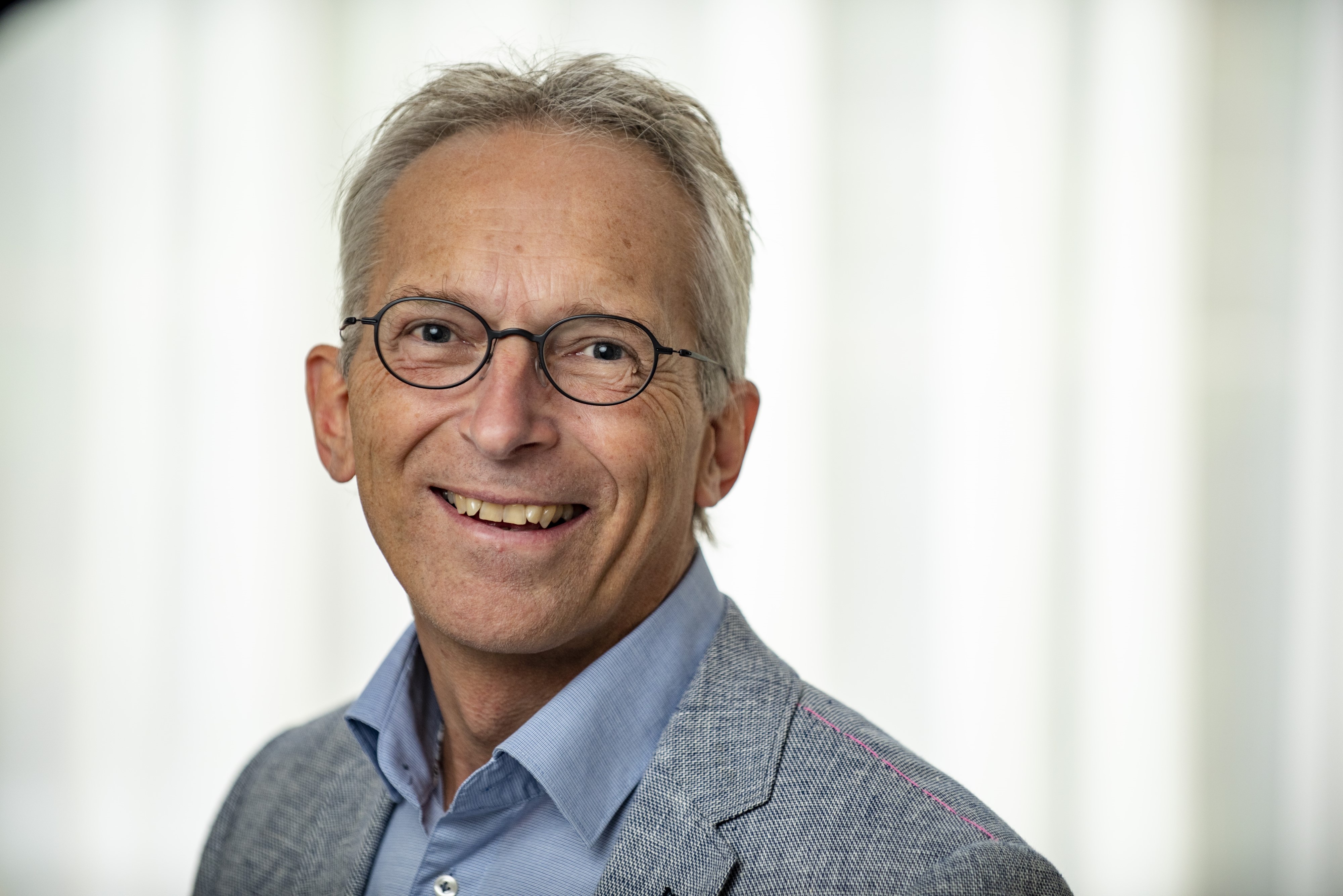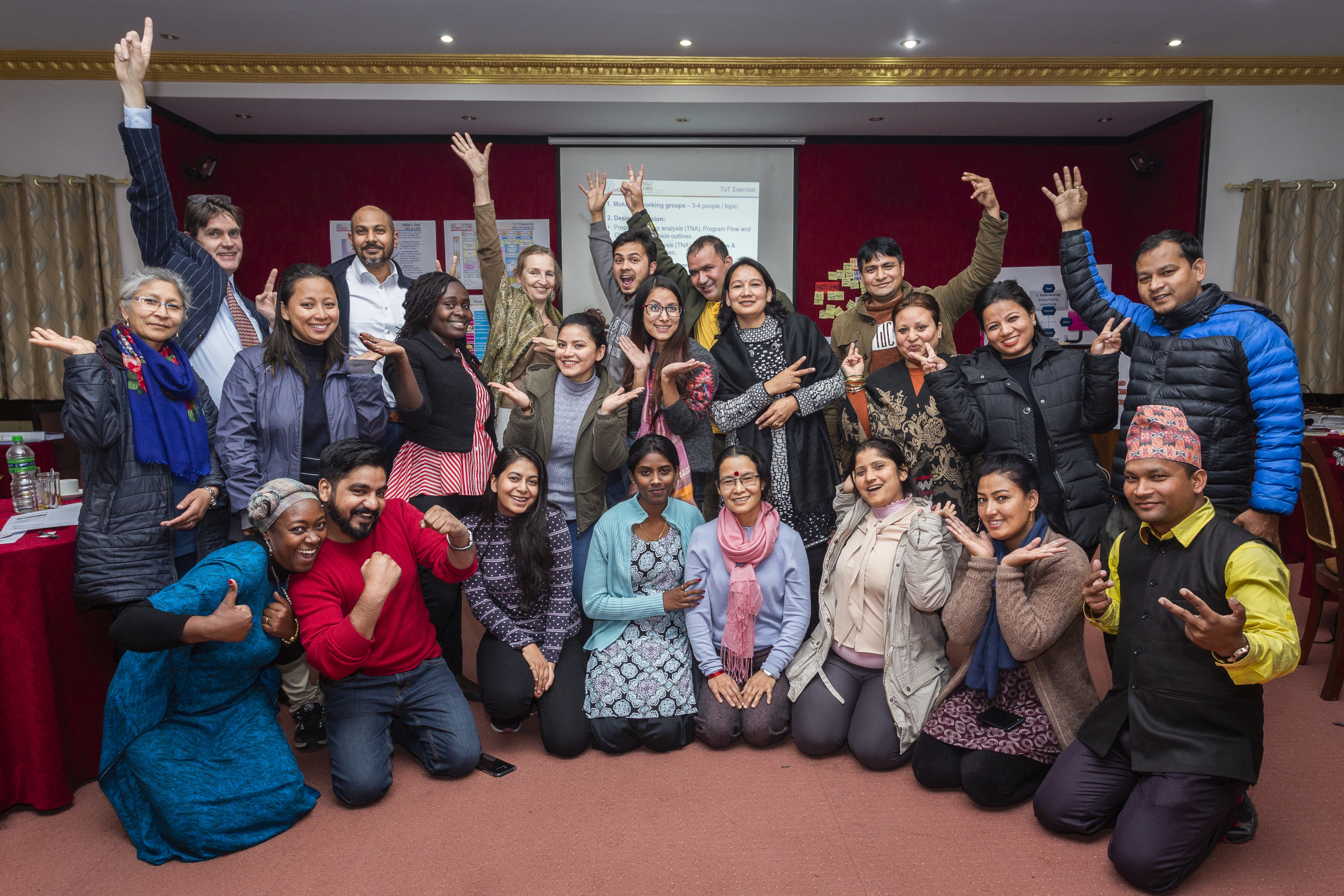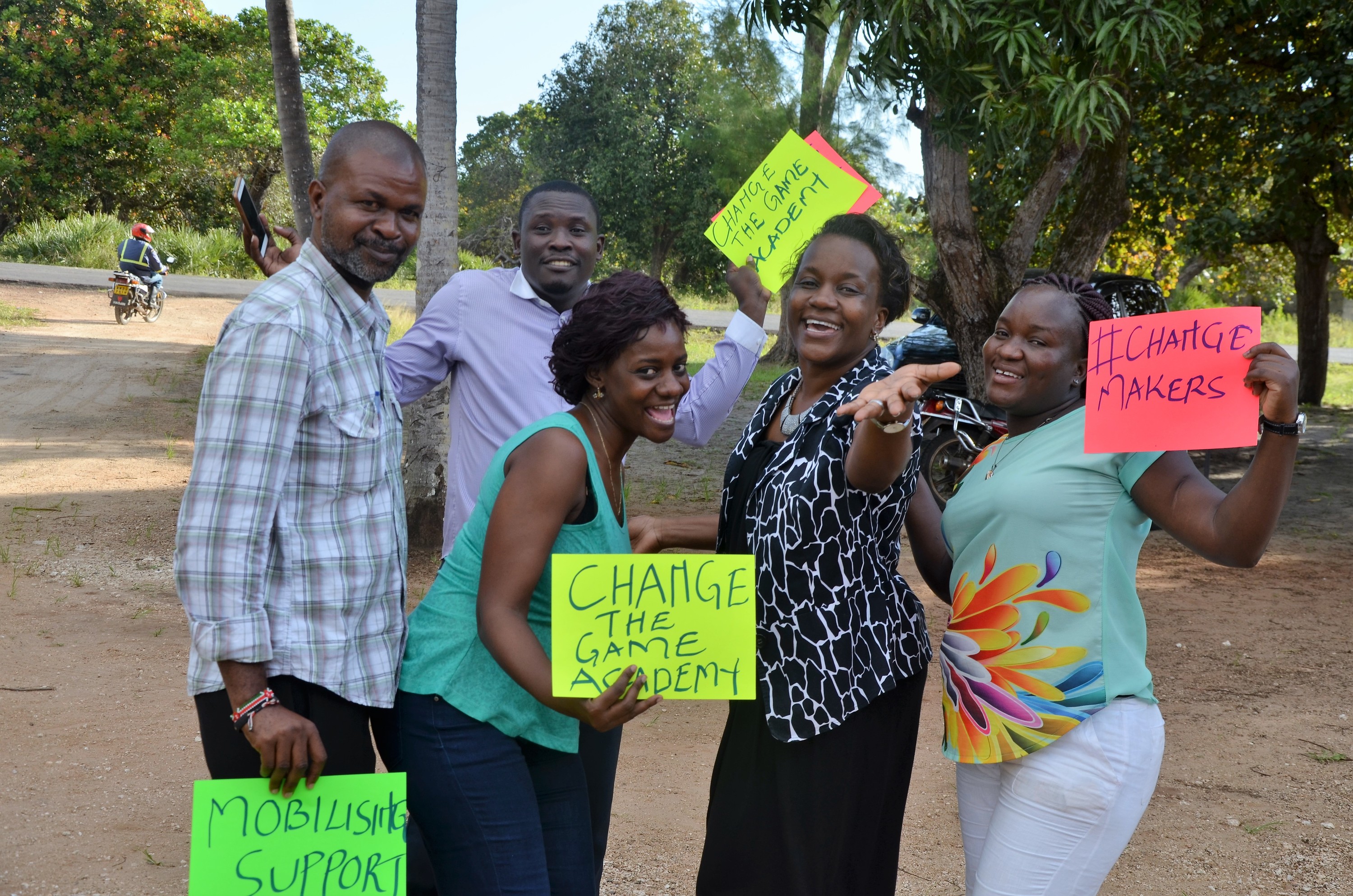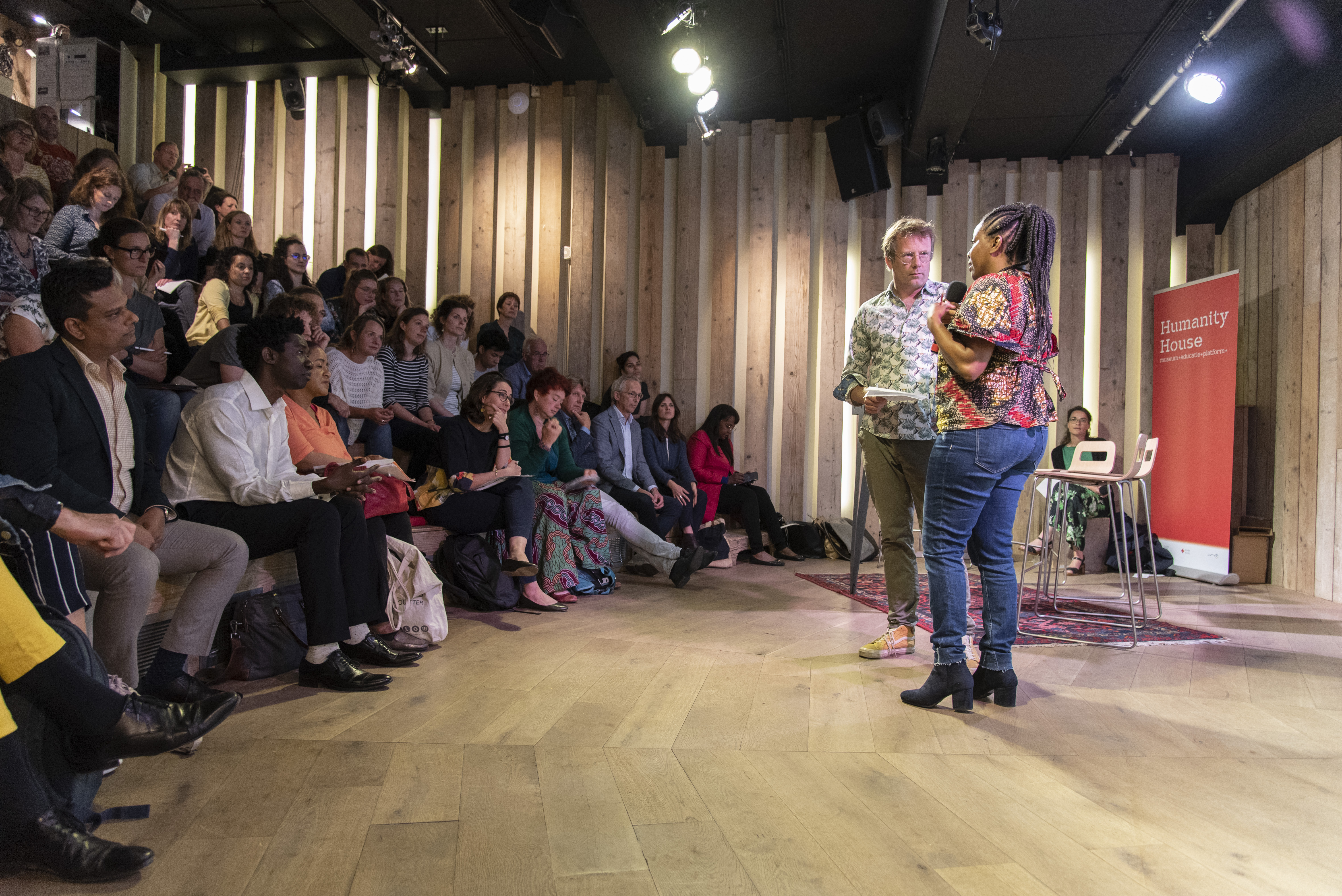“Everyone has power – how to unleash and unlock it is what matters” – Meet the Giving for Change alliance: Wilde Ganzen
28 Oct 2021
In this series of interviews, we will be introducing you to the lead partners involved in the Giving for Change programme! The five-year, €24 million programme will be implemented in Brazil, Burkina Faso, Ethiopia, Ghana, Kenya, Mozambique, Palestine and Uganda, and is led by a consortium of four organizations: the Africa Philanthropy Network, Kenya Community Development Foundation, GFCF and Wilde Ganzen. The aim of Giving for Change – part of the Dutch government’s ‘Power of Voices’ programme – is to foster local giving as an expression of voice, civic participation, solidarity and dissent. The programme will build evidence around new thinking, approaches and leadership that support community philanthropy development.
In this interview we speak with Kees de Jong, Director of Wilde Ganzen in the Netherlands. Wilde Ganzen supports community-based organizations in the Global South, and their Dutch fundraising partners, in joint efforts aimed at achieving a better future, based on the belief that communities should have control over their own development.
GFCF: What does community philanthropy currently look like in the contexts where Wilde Ganzen works?

Kees de Jong, Director of Wilde Ganzen
Kees: In the Dutch context, we have community initiatives that are both formal and informal. Communities are engaged in activities that focus on supporting the elderly, cultural activities and other community activities. In the formal spaces, this work is done by small foundations. Some of the small foundations or initiatives do not intend to support local development in the Netherlands but rather local development in the Global South. This is because people have been travelling, either professionally or for holidays, and in such instances they meet other people, become friends and – in certain circumstances – they feel they can make a contribution. Consequently, ideas are discussed with their friends and once back home, people start a foundation trying to gather resources for the emerging project. Wilde Ganzen supports these initiatives with advice and with funds in order for the projects to be co-created by community-based organizations in the Global South and their Dutch partners.
Another part of our work focuses on the Change the Game Academy, #ShiftThePower and, more specifically, on building community philanthropy in the Global South. When it comes to that, we need to look at how the development sector came into existence. It was (and still is) difficult for northern NGOs to have direct contact with very local level initiatives. Thus, intermediary southern organizations emerged. The big question is: are these intermediary organizations truly civil society because, to a certain extent, they are a construction – a gateway for the financial flow of money from the north to the south. For me, local philanthropy should not only be about community constituency-building on a local level, but this should also be happening on a national level. Like this, the role of intermediaries would become less prominent. We really need a strong southern civil society that is truly rooted and has a constituency.
GFCF: What does #ShiftThePower mean to you/your organization?
Kees: #ShiftThePower is a kind of catch-all term and it allows organizations to talk about distribution of power from the Global North to the Global South, from NGOs to communities, from donor to beneficiary, from men to women and from autocracy to democracy. From our perspective, the most important thing is to move from a top-down to a bottom-up approach because, in the end, it is only people who can change themselves. When you talk about power – as Nelson Mandela said: “Our deepest fear is not that we are inadequate. Our deepest fear is that we are powerful beyond measure.” This is quite important because it deals with how I look at myself as a human being. Thus, the bottom-up approach is very important because everyone has power – how to unleash and unlock it is what matters. You can change organizations and systems, but organizations consist of people and it is all about people in the end. People with self-esteem and self-efficacy are powerful changemakers.
GFCF: How will the Giving for Change programme help to advance the community philanthropy field or #ShiftThePower in the contexts where Wilde Ganzen works?
Kees: It is a lot about facilitation, lobbying and advocacy. Fields that are really important in advancing philanthropy include: reciprocal learning from one another; changing the donor landscape; and, looking at the legal environment. First, we need to understand how we can bring communities of practice together so learning experiences can be shared. Second, it is about changing the whole donor landscape with a focus on doing development differently. Third, we should focus on the legal environment aspect. We should really sit together with national governments and question them on why they oppose civil society – it could be that they do not want communities to hold them accountable. It could also be because of the foreign money. For example, if there is an NGO that gets foreign money, governments treat it with suspicion or even label it as foreign agent. The programme should then lobby for legislation that advances community philanthropy.
GFCF: How can Giving for Change help encourage donors / INGOs to really shift power and resources closer to the ground?
Kees: Giving for Change will encourage conversations around sustainability, and why we need to focus on reducing ongoing dependency on foreign money. Money is an important factor when it comes to the issue of power. Foreign money comes with foreign power, likewise local money comes with local power. Therefore, it is important to encourage people to generate their own money, not only in the business space but also in the civic space: philanthropy. This can be done in two ways.
One is to make space for community philanthropy, allowing it to thrive. We need international donors to embrace the insight that local fundraising skills are indispensable elements of organizational strengthening, as they contribute to building constituencies and a true civil society. Second is around redesigning the existing ways of how aid is delivered. We need to promote more equally distributed leadership, reciprocal learning, downward accountability, flexibility in funding, bottom-up designing, and most importantly build trust-based relationships. I think we can allow ourselves to focus less on convincing donors and big NGOs to shift power. Many are already convinced but are not aware which practices should be abandoned and which types of new designs and practices should be in place. Thus, we should focus more on the practical side of it, the “how to” part.
GFCF: How has aid undermined local giving practices in the Global South and what can Giving for Change do about that?
Kees: Aid has undermined local giving practices in so many ways, the major underlying issue has been that of not trusting others. People want to help but this should be done without reducing people to incompetent recipients or even beggars. There is need for a mind-set shift where we appreciate the potential of local people. Potential is not just about money but also networks, decision-making power, innovation capacity, etc. Power comes with money but money is also quite destructive. For example, self-help groups – we liked the idea and we gave money to support such groups in the Global South. However, at the very moment of giving money, the component of self-help is destroyed because people will rely on others (white northern people) instead of trusting themselves. Consequently, when money comes in, it destroys the whole idea of power from within. We have to be very careful about how much money we put into supporting local projects as outsiders.
The whole structure of civil society is an issue because the need for intermediary organizations created a kind of fake civil society in the Global South. The northern NGOs and governments can be blamed for that: they needed other organizations to take care of the money, to distribute it and to take care of operations. However, we did not consider the whole issue of what makes civil society organizations truly owned by civilians, and not by foreign donors. This comes with the accountability part. If you are less accountable to foreigners and more to the local people, to the local government, they respect you much more and they also listen to you much more. Having a constituency empowers local organizations to lobby. So, finally, when working with communities we should never forget to do this on an equal basis, unlocking and nurturing the often hidden – yet enormous – potential available there.
Interview conducted by: Tarisai Jangara, GFCF Communications Specialist
Meet the other Giving for Change partners:
Association Burkinabè de Fundraising (Burkina Faso)
Brazil Philanthropy Network for Social Justice
Coordenadoria Ecumênica de Serviço – CESE (Brazil)
Development Expertise Center (Ethiopia)
Global Fund for Community Foundations (South Africa)
Kenya Community Development Foundation





